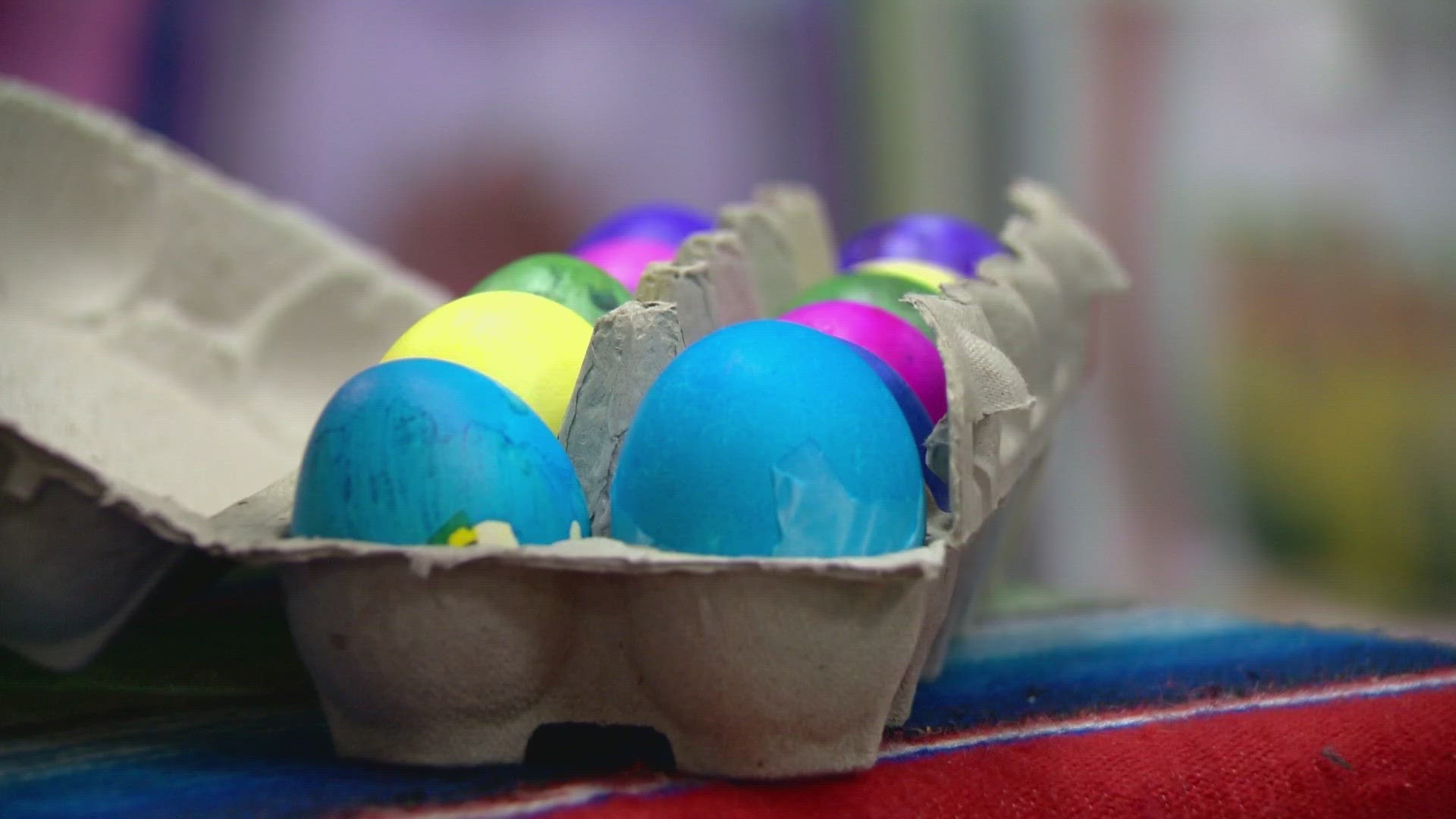SAN ANTONIO — It looks like the price of eggs keeps tumbling. This follows five months in a row of rising prices.
Just around the corner are two holidays in the Alamo City in which eggs play a leading role. KENS 5 was curious to learn the impact, if any, the higher egg prices have on our beloved cascarones.
One business owner made a shocking discovery. It wasn't the eggs themselves that were the most costly part of his last shipment of cascarones. It was the cartons.
"The tail end of our purchasing, we have had to absorb the higher prices," said Jeffrey Wiss, Owner and President of Amol's. "There's been kind of a supply crunch and it's been harder to get them."
The price of eggs fell 6.7%, from $4.82 in January to $4.21 in February. Still, that's two dollars more expensive compared to the same time last year.
Weiss says supply chain issues and the deadliest bird flu outbreak in U.S. history contributed to his last batch of cascarones costing higher than ever.
"I do know that because of the shortage that there are some large retailers that have been looking to China to get these made in China, not Mexico," he explained. "We've encountered situations where the price has doubled for us."
Weiss said what's really driving up the price tag isn't the eggs. It's their containers.
"Cartons used to be 10, 11 cents and they went all the way up to over 50 cents," said Weiss. "The dozen cartons and all the boxes, they've tripled, quadrupled, quintupled from where they were in 2020, 2021."
In a normal year, Amol's sells nearly half a million cascarones for the Easter and Fiesta season. Weiss says he isn't certain if the numbers will match that this year, but they'll be close.
"If [higher egg costs] eats into the profit margin for one year, we're happy to absorb that," he added. "We want to keep customers happy."
Volunteers with The Conservation Society of San Antonio have 600 cases of cascarones ready for NIOSA.
"We usually do a lot more. But being, you know, with the shortage of eggs, we've had slowed down," said Maureen Berryman, volunteer and former organizer. "And now the bird flu, that took a lot of our eggs."
To help fill the void, The Conservation Society is crowdsourcing their eggs. Neighbors and community members are bringing them in.
"We will have plenty for each of the booths and I believe there's 10 booths we're gonna have all around NIOSA," said Berryman. "There will be cascarones!"
Sticker shock has some families downsizing their cascarones inventory this Easter.
"My family members start in December collecting the shells, but that's when they were the most expensive. You couldn't even find eggs, remember? So we just said, 'Not this year!'" said Dee Mireles, a shopper at Amol's. "Just maybe two dozen we're gonna make at home. They're too expensive this year."
Despite higher prices for eggs, other shoppers say they still plan to make cascarones themselves.
"Since we were growing up, we've always had cascarones with my mom. We learned how to pick the confetti by sitting in the floor around my four, five sisters," said Grace Trevino-Quesada. "It wouldn't be Easter without cascarones. That's a lifetime tradition for us."

